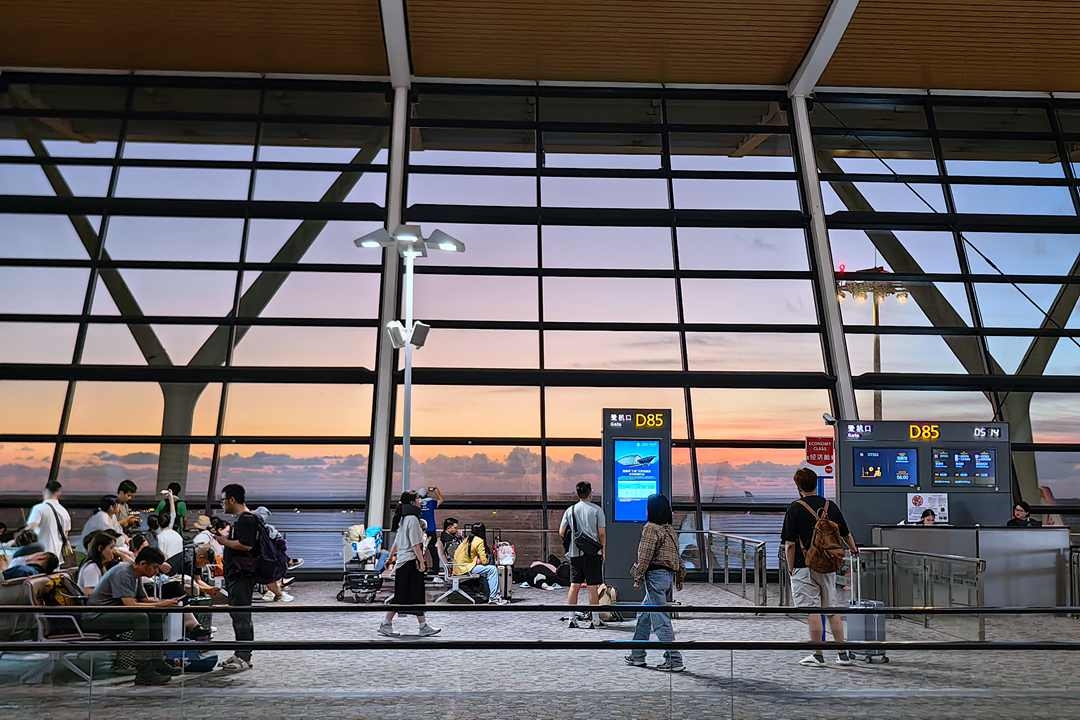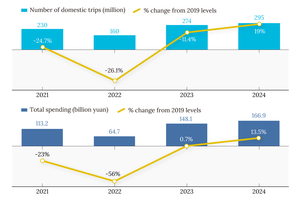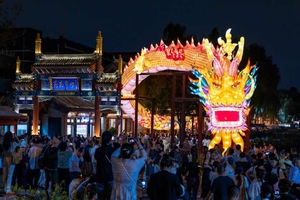Analysis: Mid-Autumn Festival Spurs Patchy Tourism Rebound
Listen to the full version

Chinese travel spending picked up from pre-pandemic levels during the recent Mid-Autumn Festival holiday, but lower flight and hotel prices, driven in part by a growing shift toward local tourism, underscore the persistent and patchy recovery of China’s domestic consumption.
Domestic travelers spent a total of 51 billion yuan ($7.2 billion) during the three-day holiday that ended Tuesday, an increase of 8% over the same period in 2019, the Ministry of Culture and Tourism said on Wednesday.

Download our app to receive breaking news alerts and read the news on the go.
Get our weekly free Must-Read newsletter.
- DIGEST HUB
- Chinese travel spending during the Mid-Autumn Festival rose 8% from 2019, totaling 51 billion yuan ($7.2 billion).
- Shorter, cheaper trips led to falling hotel and airfare prices; typhoons caused significant travel disruptions.
- Domestic trip numbers and spending per trip increased, but box-office revenue and overall consumption were weak.
- Trip.com
- Trip.com data indicates that more than half of hotel bookings during the Mid-Autumn Festival were made by guests staying within their own province or region. Popular train routes had journey times of under three hours. Flight AI, a platform owned by Trip.com, reported a 25% drop in average domestic flight prices compared to last year. Outbound travel also increased, especially from Zhejiang and Hainan provinces.
- Qunar.com Inc.
- Qunar.com Inc. provided data indicating that hotel room rates dropped by 20% over the same period last year. Qunar.com researcher Xiao Peng noted that price-sensitive travelers typically take only one trip during the Mid-Autumn Festival or National Day holidays and prefer closer destinations during shorter breaks.
- Huatai Securities Co. Ltd.
- Huatai Securities Co. Ltd. is mentioned in the context of an analysis by economist Yi Huan, who noted that the rebound in China's domestic consumption has been weaker than expected, partly due to government policies falling short of expectations. Stimulating consumption has become a key focus in China's efforts to boost its economic recovery, which saw a GDP growth of 4.7% year-on-year in Q2, missing market expectations.
- Topsperity Securities Co. Ltd.
- Topsperity Securities Co. Ltd. is mentioned in the context of an analysis by their analyst Zhang Hao, who noted that consumer spending in sectors such as food, shopping, and entertainment was weak during the Mid-Autumn Festival. Zhang attributed this to recent typhoons and the upcoming National Day break, indicating that local government measures to stimulate consumption have yet to make an impact.
- Early Monday morning, September 16, 2024:
- Typhoon Bebinca slammed into Shanghai, causing mass flight cancellations and rail service suspensions.
- September 17, 2024:
- Three-day Mid-Autumn Festival holiday ended.
- September 18, 2024:
- Ministry of Culture and Tourism reported domestic travelers' spending and travel statistics.
- September 19, 2024:
- Topsperity Securities Co. Ltd. analyst Zhang Hao released a report on consumer spending during the holiday.
- PODCAST
- MOST POPULAR







 Sign in with Google
Sign in with Google
 Sign in with Facebook
Sign in with Facebook
 Sign in with 财新
Sign in with 财新